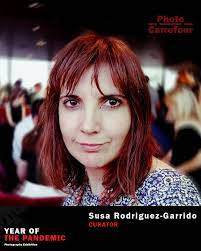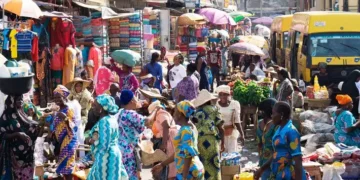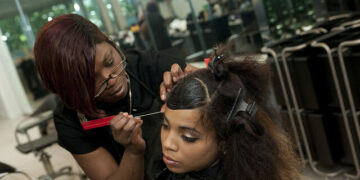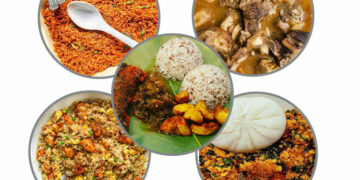Garrido had earlier addressed how La Experiencia is a first of its kind and a collaborative effort with the Embassy of Spain. She continues:
I can tell you as an artist that when you arrive at a new place, building a creative process takes a while. So, it was with the three artists, Ramon in Spain, Olorunyemi Kolapo and Helen both in Nigeria. Putting together the works on display at La Experiencia took time. Nzete who won the prize, travelled to Spain in February, and that took a while; likewise, Kolapo had a European solo exhibition which also took him to Spain in February, so it was for a month. After that, it took time to organize visa, the practicalities and creative process takes a while.
How does your involvement with La Experiencia fit into your big picture of starting your art show away from Nigeria?
I will definitely carry on with that. As you know I work with a lot of artists around the world. Just because I am not physically absent does not mean that I will disappear. I am still going to be in contact with the artists. Nowadays is very easy to keep in contact with the internet and technology, so, that’s not a problem for me. Also, I am putting together an annual project, that will be an exchange between Nigerian and Spanish artists, and vice versa. It’ll keep my heart in Nigeria and my creative juices for Nigeria.
It was due to your efforts that your artist Kolapo, got to go on a European solo exhibition, and the La Experiencia exhibition. Can you talk about that, because you don’t see a lot of Nigerian artists who are able to do so on their own?
Yes, it is difficult for Nigerian artists in general to go anywhere. It is interesting because in Europe, even though we know that African art is amazing, and Nigerian artists very talented, there aren’t a lot of artists exhibiting there, and that’s for a lot of reasons. European curators that understand African art, and arts such as myself are not that many. It is not that easy for them to connect with African artists. I am now in a very lucky position where I am here, to be able talk to them, get to know them, not only professionally but also as a friend. This helps me understand how they think; and their objectives. That way, it is easier (not that it is easy) for me to take them to Europe. It is easy to familiarize myself with the artists and their works, and to relate with the potentially good artists that are serious about their work, and are doing really well. It is a combination of things.
How do you balance the originality and creativity of the works the artists you represent create as opposed to creating what may interest you or Europeans to see about African art?
That’s a good question. I encourage them not to let the material or commercial side of things overtake their creative process. I encourage them to research their roots, and explore their roots because that’s very important. In fact, that is what attracts Europeans, that you can still be modern yet maintain your African traditional roots or rather your Nigerianism. It is important that they don’t lose themselves and that they be true to themselves. Being true to themselves brings a genuineness and honesty to their work. It’s not like “I am doing this because it has commercial value. I am doing this because I believe in it, and it is very close to my heart.”
You are gradually building a reputation for yourself as an independent person/agency bringing contemporary African Art and artists to Europe. What is it like competing with other bigger galleries and art agency’s that are doing the same? How do you separate yourself or make your role unique from what they are doing?
I think I am unique in the sense that I am not worried about competition. I am more of a collaborator by nature. There is always space for everybody. You don’t have to be jealous. You don’t have to be fierce. You don’t have to fight. There are loads of opportunities for artists. Because I love art so much (being an artist myself, and a published author, with my latest publication Abuja Buildings in print) that comes across in what I do. I think these, in addition to the fact that I love what I do, and I love Nigerian artists, their works, their personality, advising them, collaborating with them, makes me unique. Kolapo has a great personality. He is a serious artist, intelligent, young and shows a lot of potential.
How many Nigerian artists does your agency Agama Art Publishing represent?
I know quite a lot of Nigerian artists. I will say my main artist is Kolapo. He is an incredibly talented artist. I manage him completely. Of course, I have got about ten other artists that I partially manage but not completely like Kolapo. But gradually, I can build up those relationships to the point where I feel it’s okay for me to take them full on. It is a process that takes time because I do other things, and at the same time growing my own career, so, I have to balance everything.




